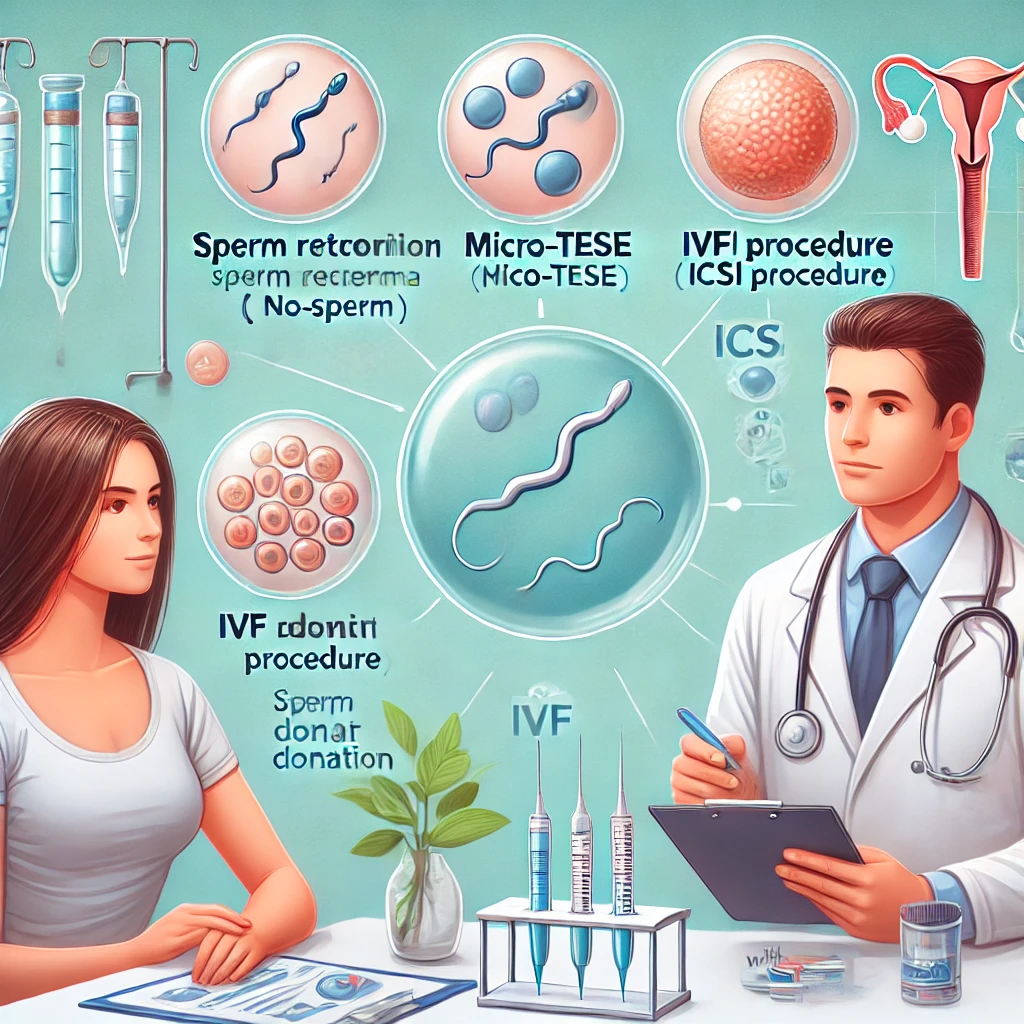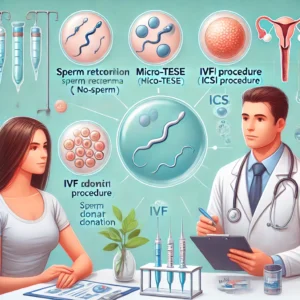
My sperm count is zero how to increase
My Sperm Count is Zero – How to Increase It? Having a zero sperm count, also known as azoospermia, can be a distressing condition for

My husband has no sperm – how can I get pregnant? Discovering that your husband has no sperm (a condition known as azoospermia) can be distressing, especially if you are trying to conceive. However, many medical and alternative options can help you achieve pregnancy. In this blog, we will explore the causes of azoospermia, available treatment options, and other ways to become a parent.
Azoospermia is a medical condition where a man has no measurable sperm in his semen. This can be due to either a blockage preventing sperm from being released (obstructive azoospermia) or a lack of sperm production (non-obstructive azoospermia).
Understanding the cause of azoospermia is crucial in determining the right course of action to conceive.
The good news is that there are multiple options to consider. Here are the most effective methods:
If your husband has azoospermia, medical intervention may help, depending on the cause.
Even if there is no sperm in the semen, doctors can attempt to retrieve sperm directly from the testicles using:
If sperm is successfully retrieved, it can be used in in vitro fertilization (IVF) with intracytoplasmic sperm injection (ICSI) to achieve pregnancy.
If sperm retrieval is unsuccessful, using donor sperm is an option. This involves intrauterine insemination (IUI) or IVF using sperm from a donor.
Pros of donor sperm:
While medical treatments are effective, some couples explore alternative methods that may improve fertility:
Eating a healthy diet rich in antioxidants, vitamins, and minerals can improve overall reproductive health. Some essential nutrients include:
Some natural supplements, such as ashwagandha, maca root, and Coenzyme Q10, have been linked to improved male fertility. However, consult a doctor before using any herbal treatments.
Acupuncture has been shown to support reproductive health by improving blood circulation to reproductive organs. Reducing stress through yoga, meditation, and relaxation techniques can also support fertility.
Toxins from pesticides, plastics, and heavy metals can negatively impact sperm production. Avoiding exposure to these harmful substances can improve reproductive health.
Dealing with male infertility can be emotionally challenging. Here are some tips to cope:

My Sperm Count is Zero – How to Increase It? Having a zero sperm count, also known as azoospermia, can be a distressing condition for

My Husband Has No Sperm – How Can I Get Pregnant? My husband has no sperm – how can I get pregnant? Discovering that your

Prolistem, a patented formula, has not been evaluated by the Food and Drug Administration. This product is not intended to diagnose, treat, cure, or prevent any disease.
Copyright © 2025 Prolistem®
Prolistem, a patented formula, has not been evaluated by the Food and Drug Administration. This product is not intended to diagnose, treat, cure, or prevent any disease.
Copyright © 2023 Prolistem®